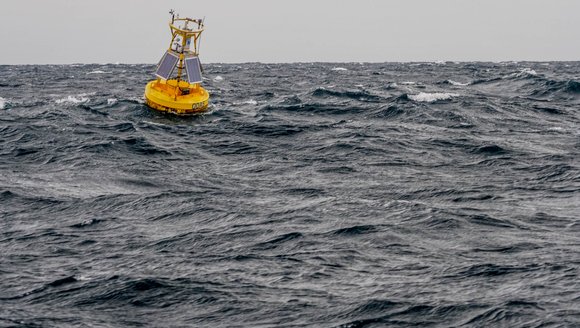Gulf of Maine, Explained: Environmental DNA (eDNA)
Gulf of Maine, Explained | Jun 7, 2024
GMRI Research Scientist Dr. Graham Sherwood, who leads our Fisheries Ecology Lab, explains how environmental DNA (eDNA) can help us study fish populations in the ocean.
In this edition of Gulf of Maine, Explained, Dr. Graham Sherwood, talks about an exciting new technique for studying marine life that his lab is working to validate: eDNA.
Over his nearly 30-year career, Graham's methods have evolved from traditional net fishing to more advanced techniques like fisheries acoustics, which uses sound to image the water column and count fish. Over the last 10 years or so, Graham has been exploring environmental DNA (eDNA) as a new method for studying marine life, pairing it with existing techniques to confirm its accuracy.
The eDNA validation method involves collecting ocean water samples, analyzing them in the lab for DNA content, and comparing the results with data from fisheries acoustics research. This technique can identify fish species and their abundance more precisely, especially in habitats that are difficult to sample through traditional or acoustic methods. The more accurate we can be when it comes to knowing which fish species are where and how abundant they are, the better we can manage marine ecosystems at large.
A Closer Look at our eDNA Work
Observing the Ocean
The ocean is a big, ever-changing system. Fish are constantly moving around and weather conditions can change in an instant. This makes studying marine ecosystems …
Perspectives|May 28, 2024
Gulf of Maine, Explained
In our video series, The Gulf of Maine, Explained, you’ll learn more about important-but-unfamiliar concepts related to our work. We’ll cover commercial fishing, fisheries research, sustainable seafood, education, and more. While we probably won’t answer all your questions in one short video, we hope to spark your curiosity about complicated issues that are central to our mission.




